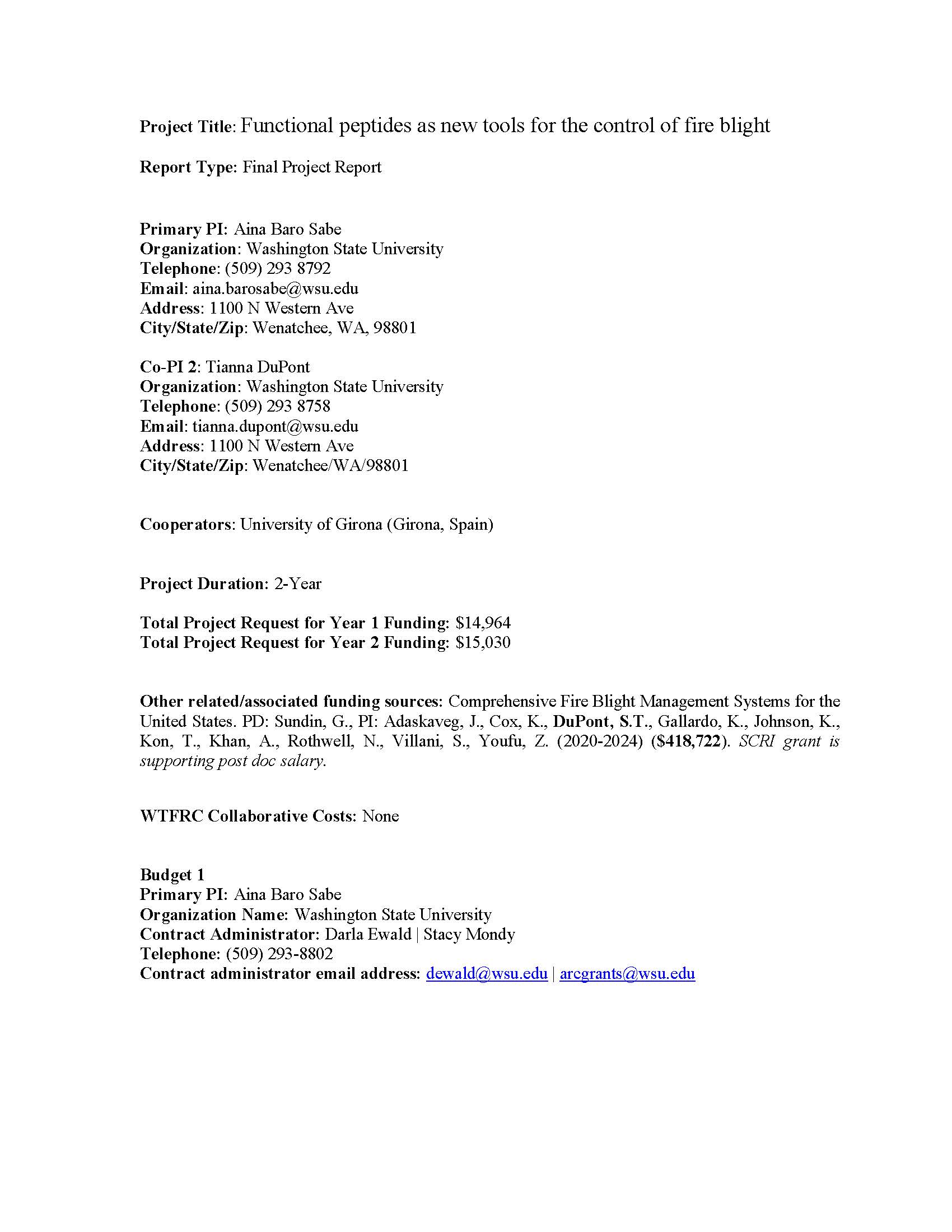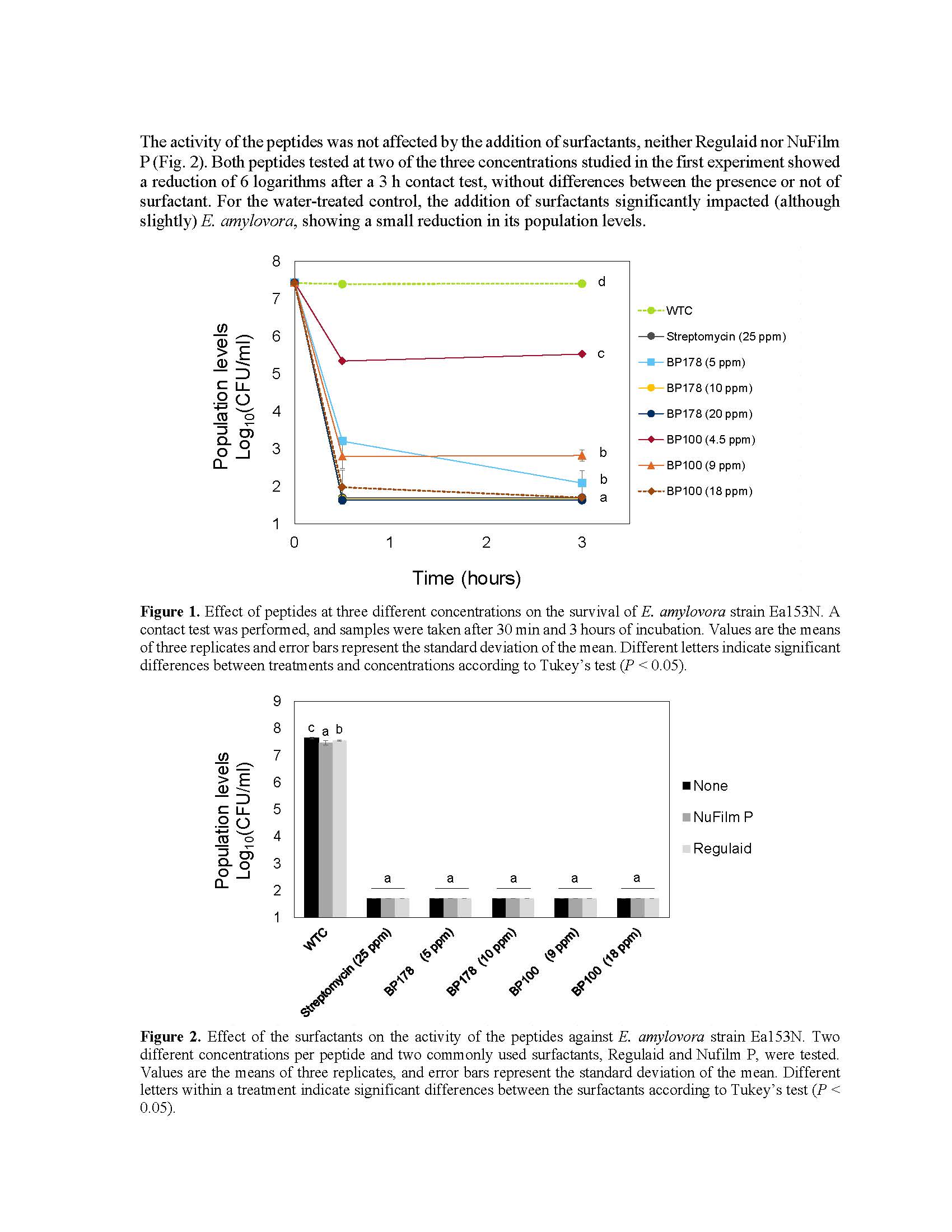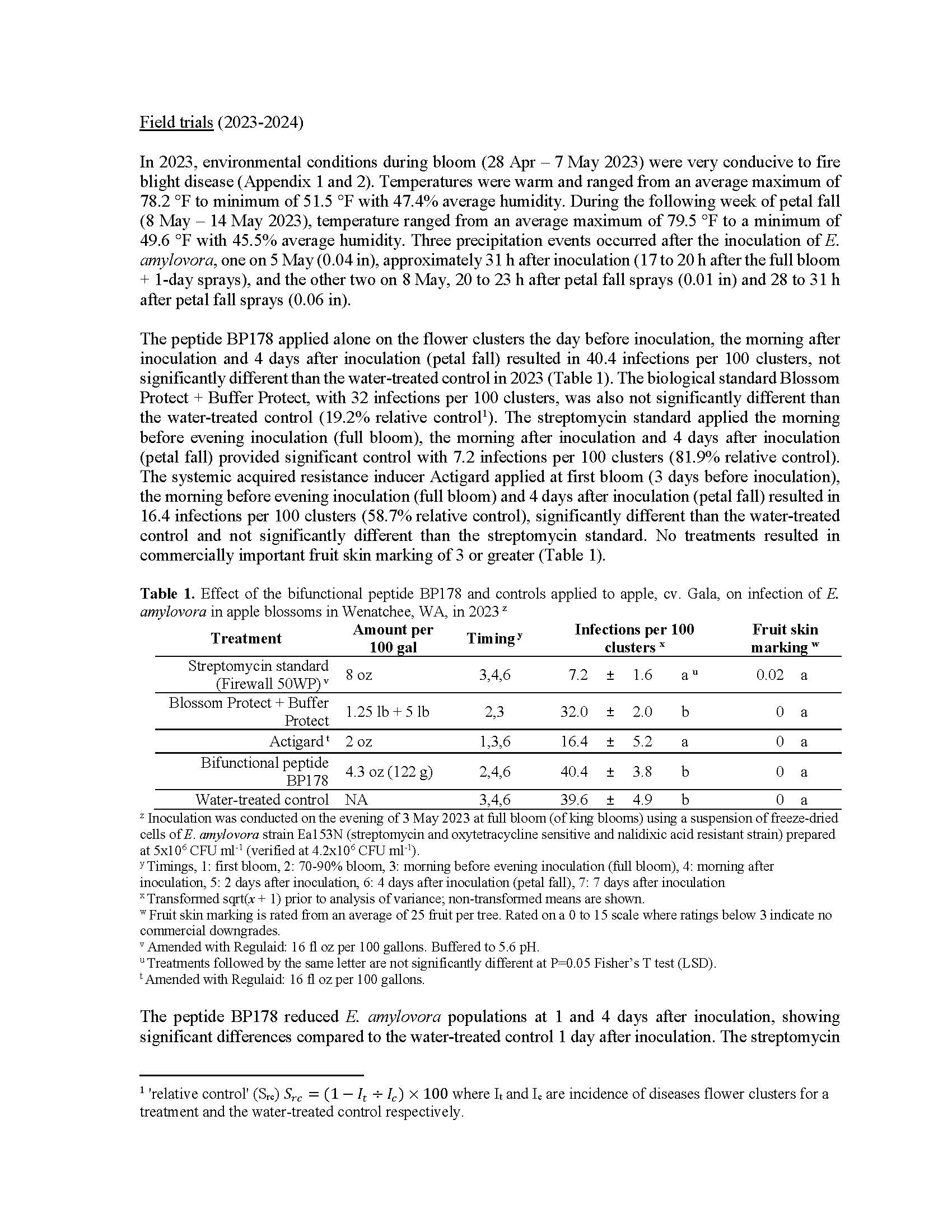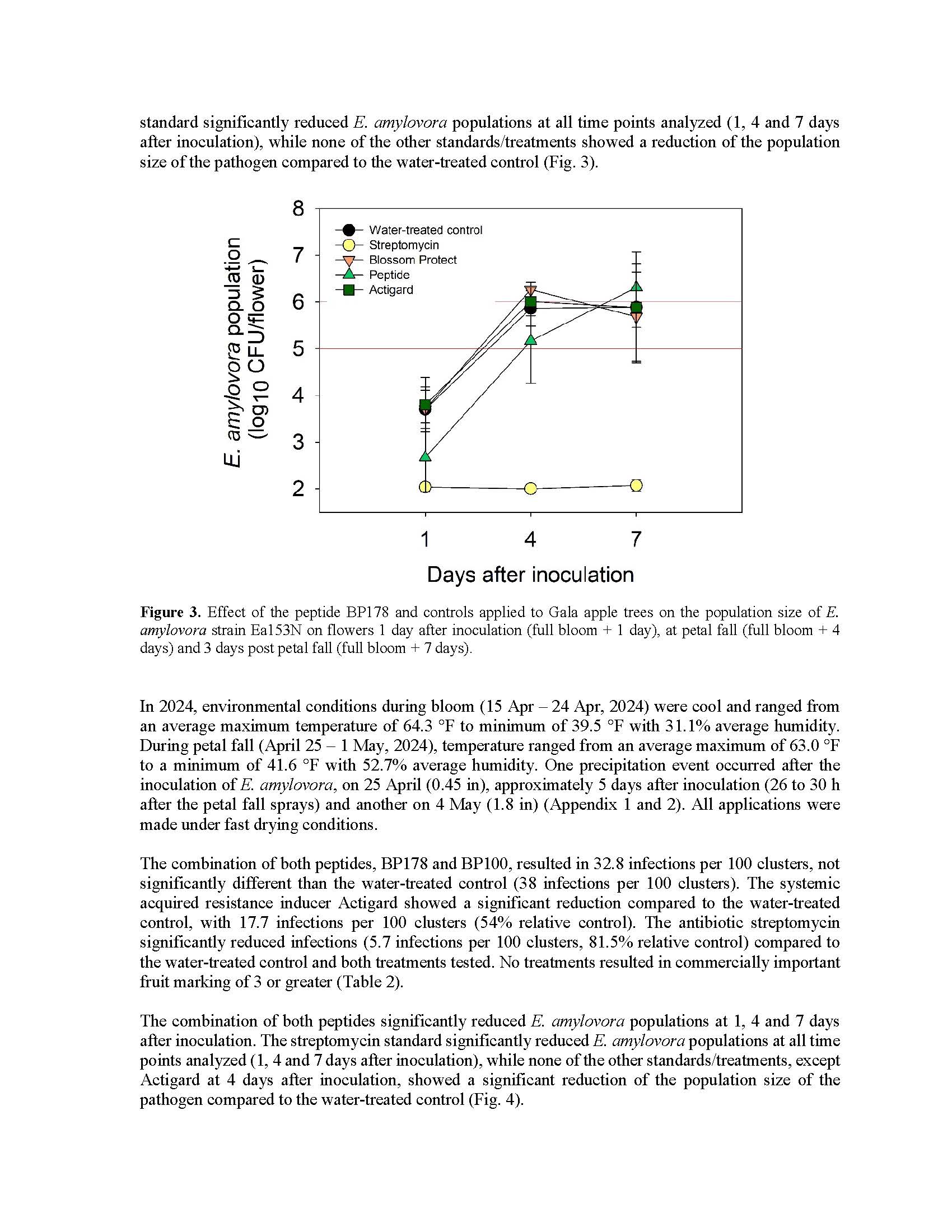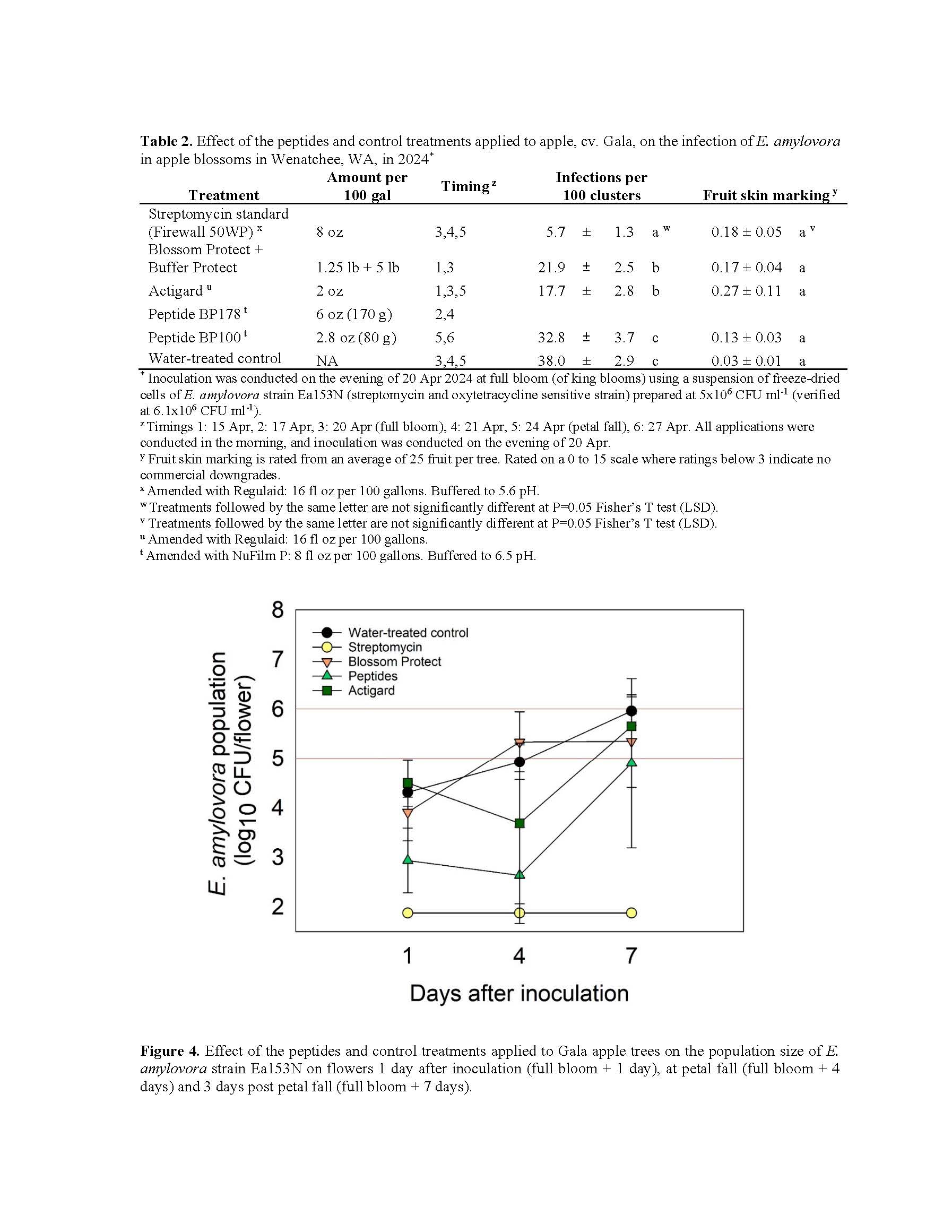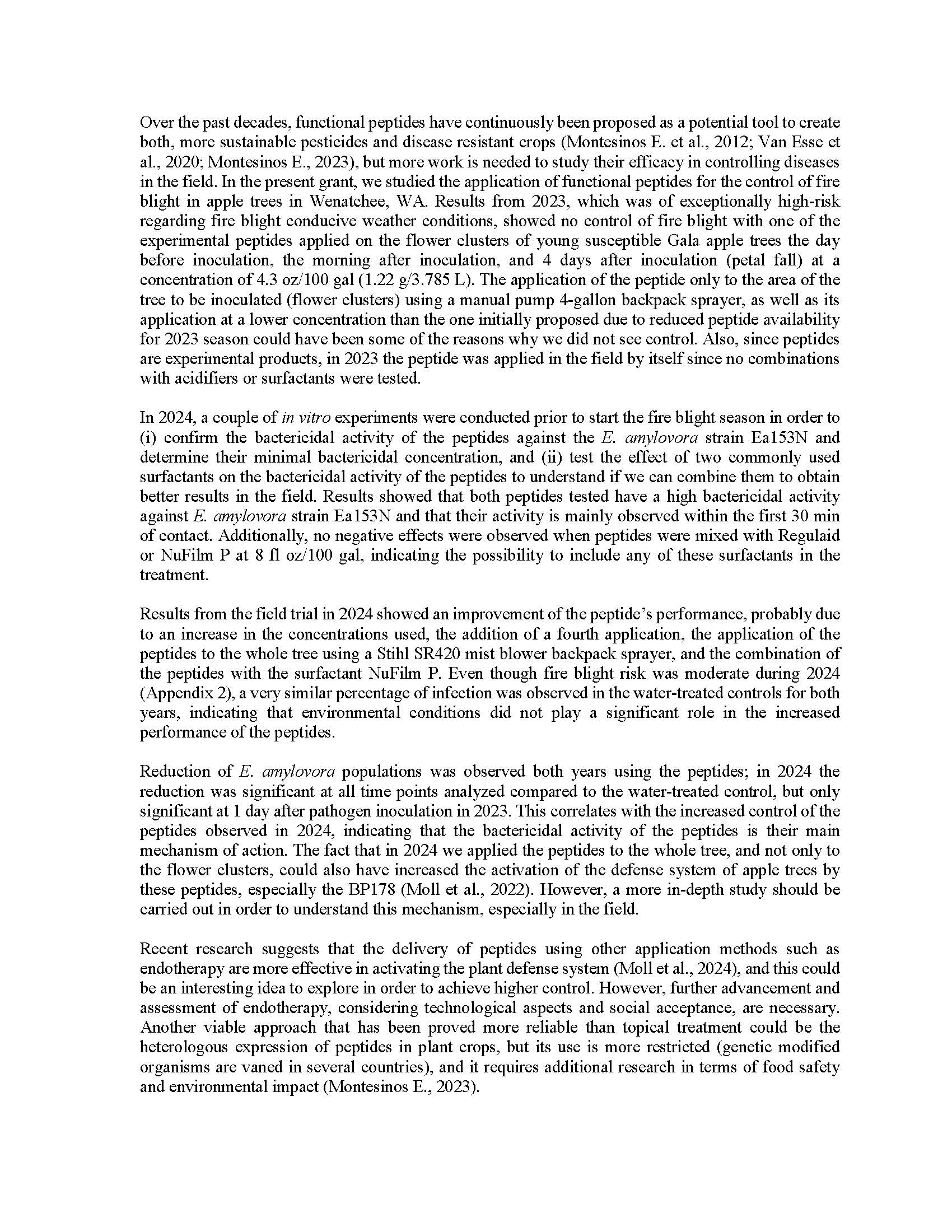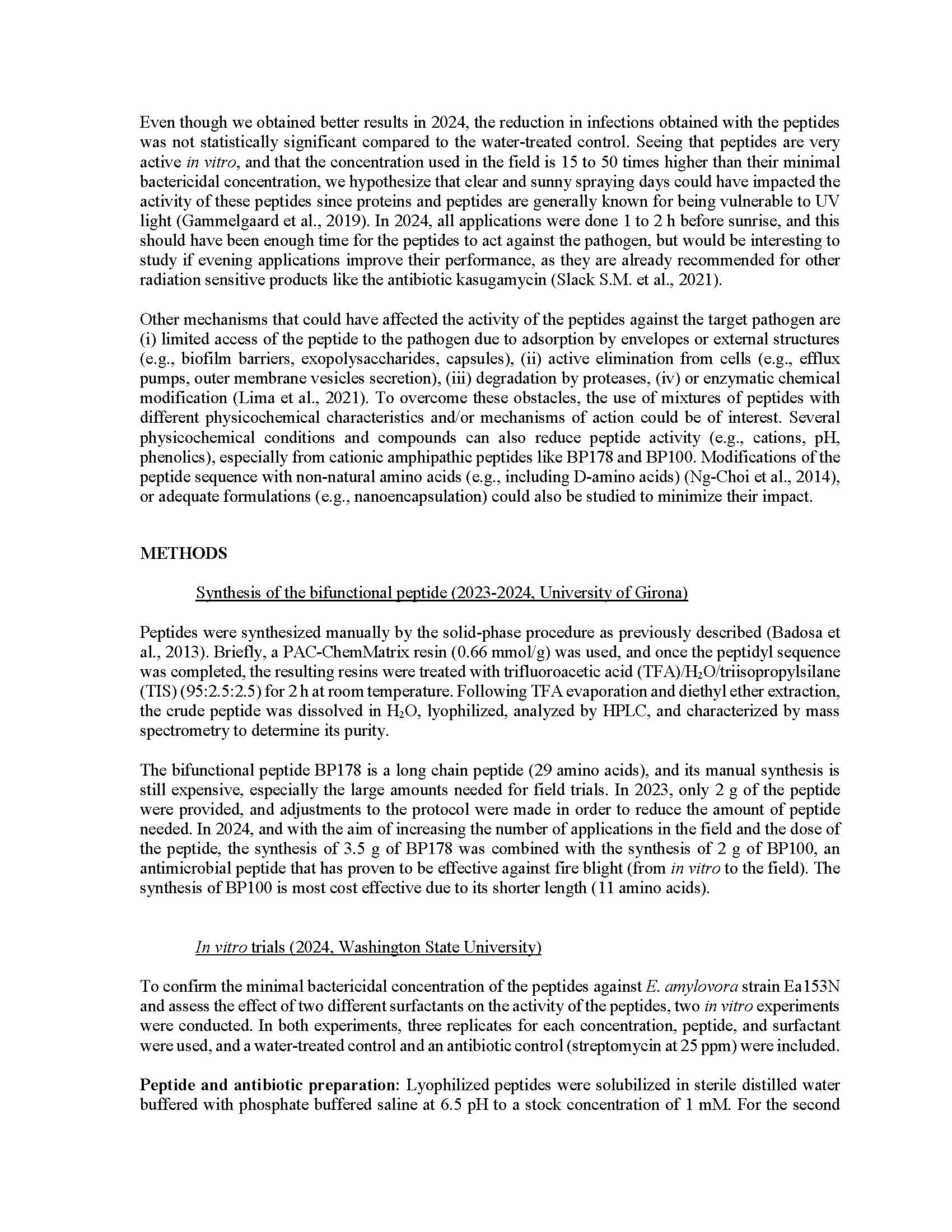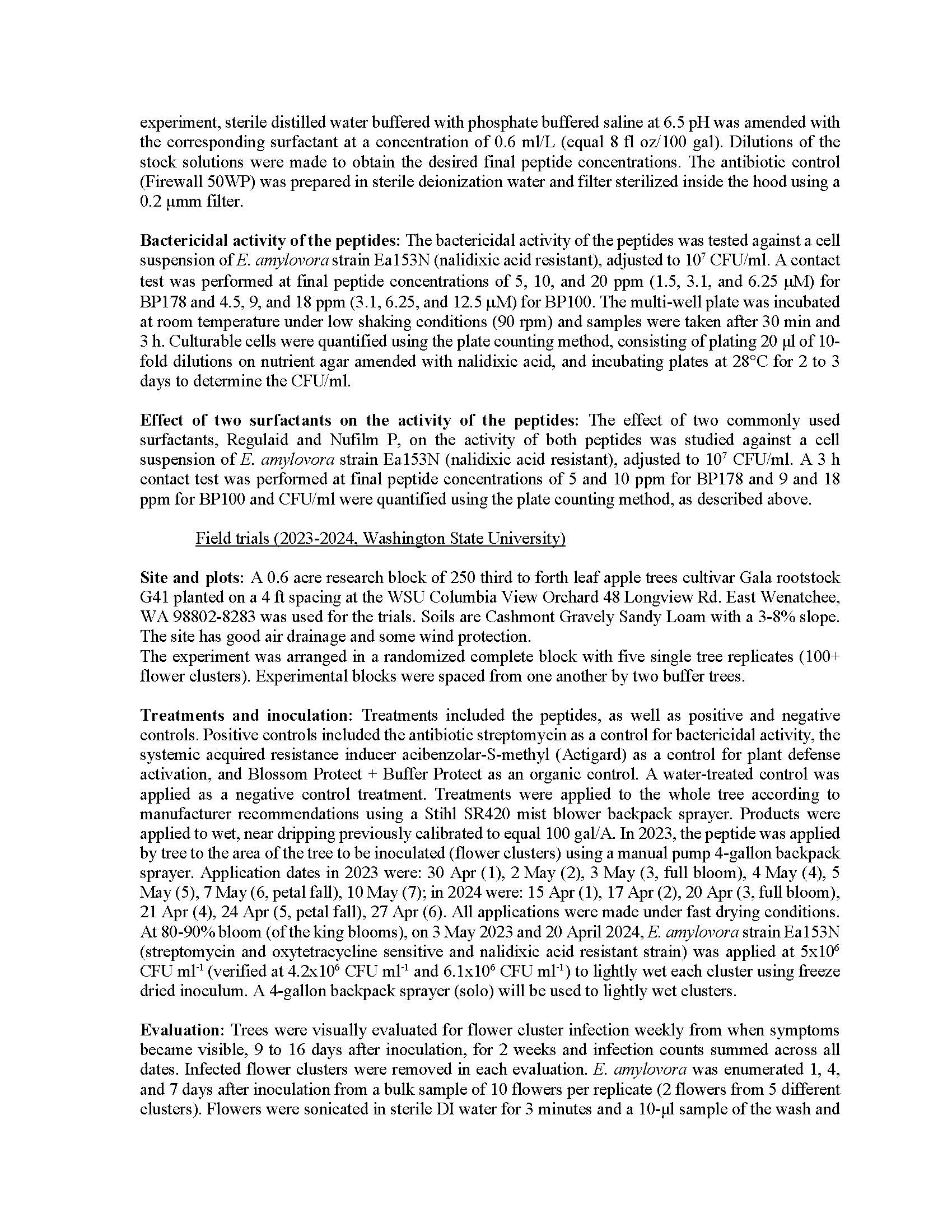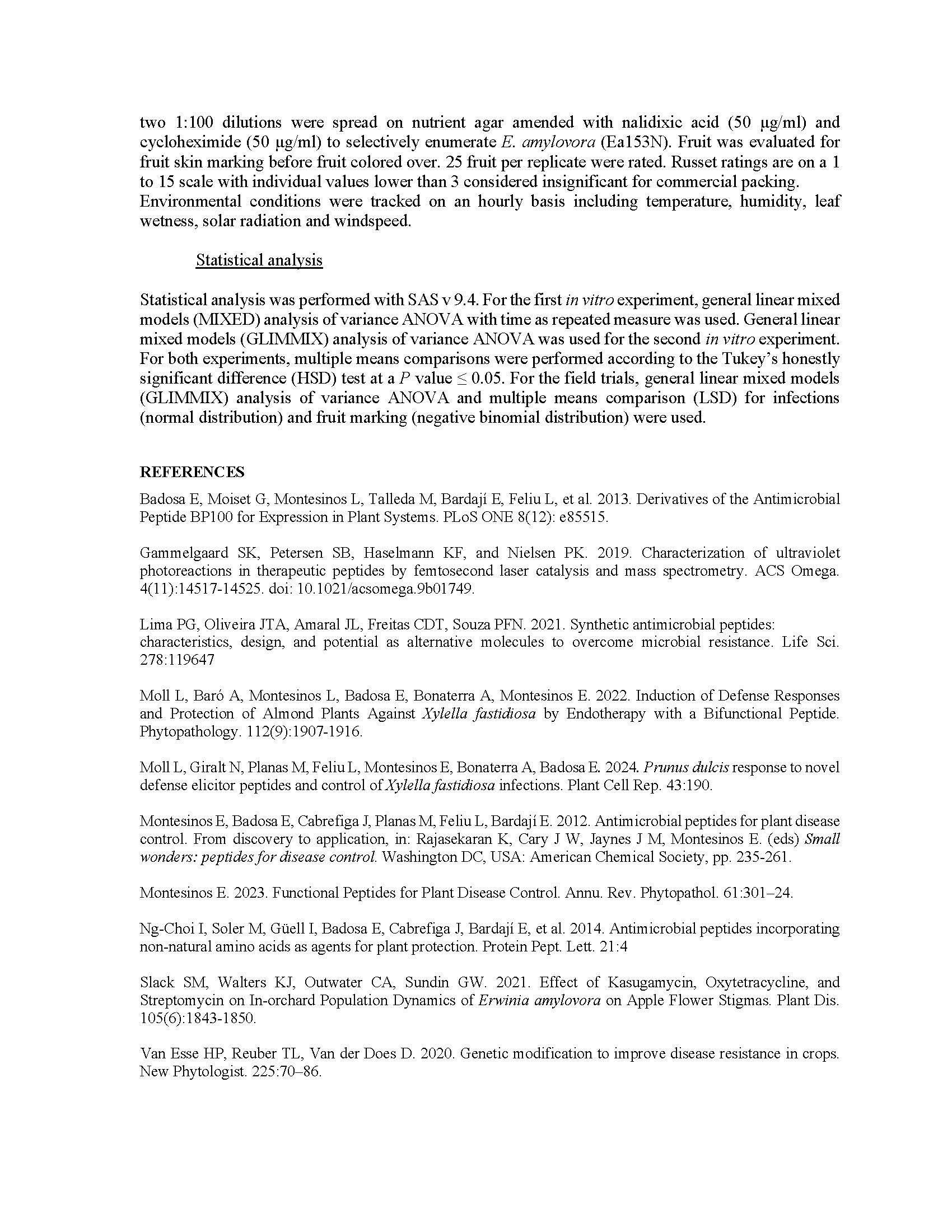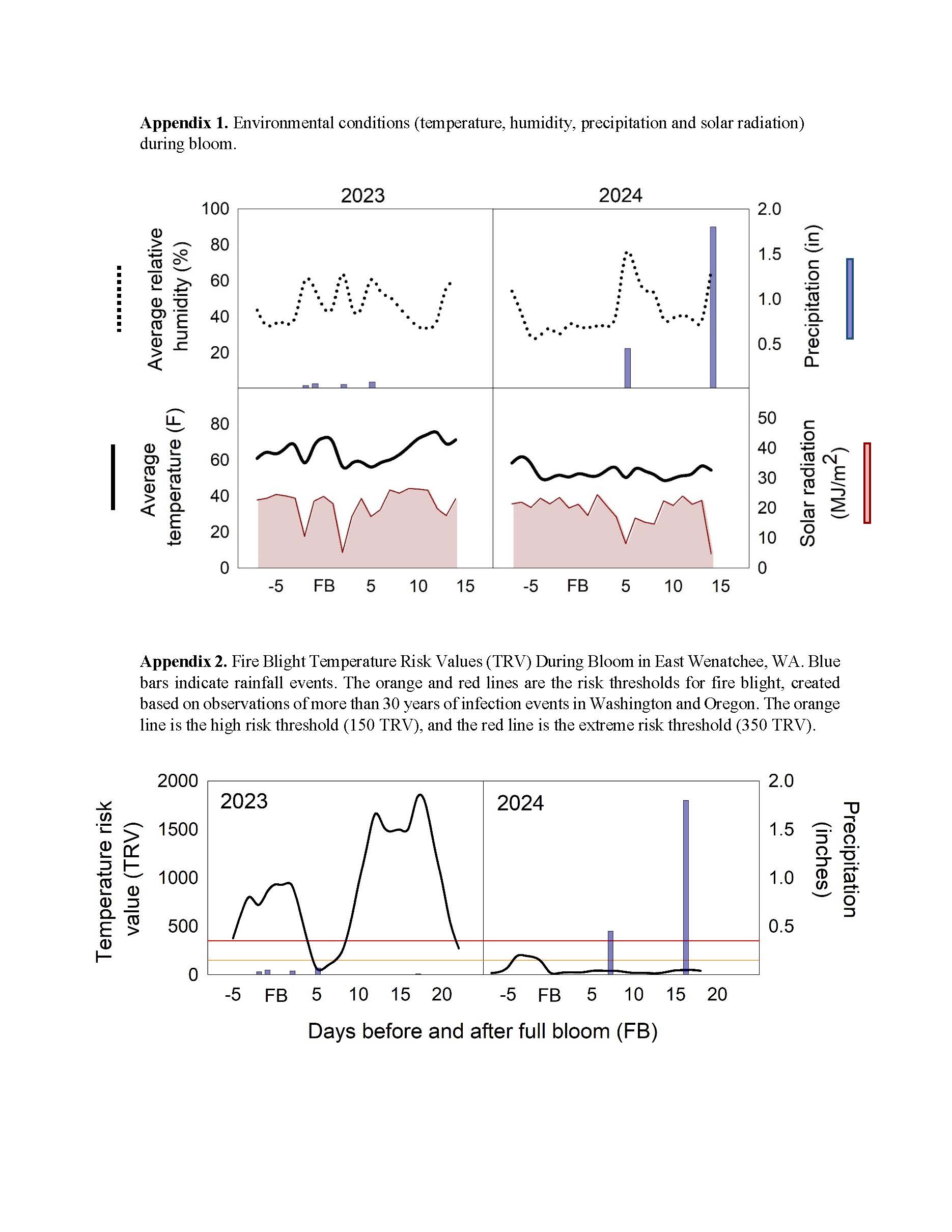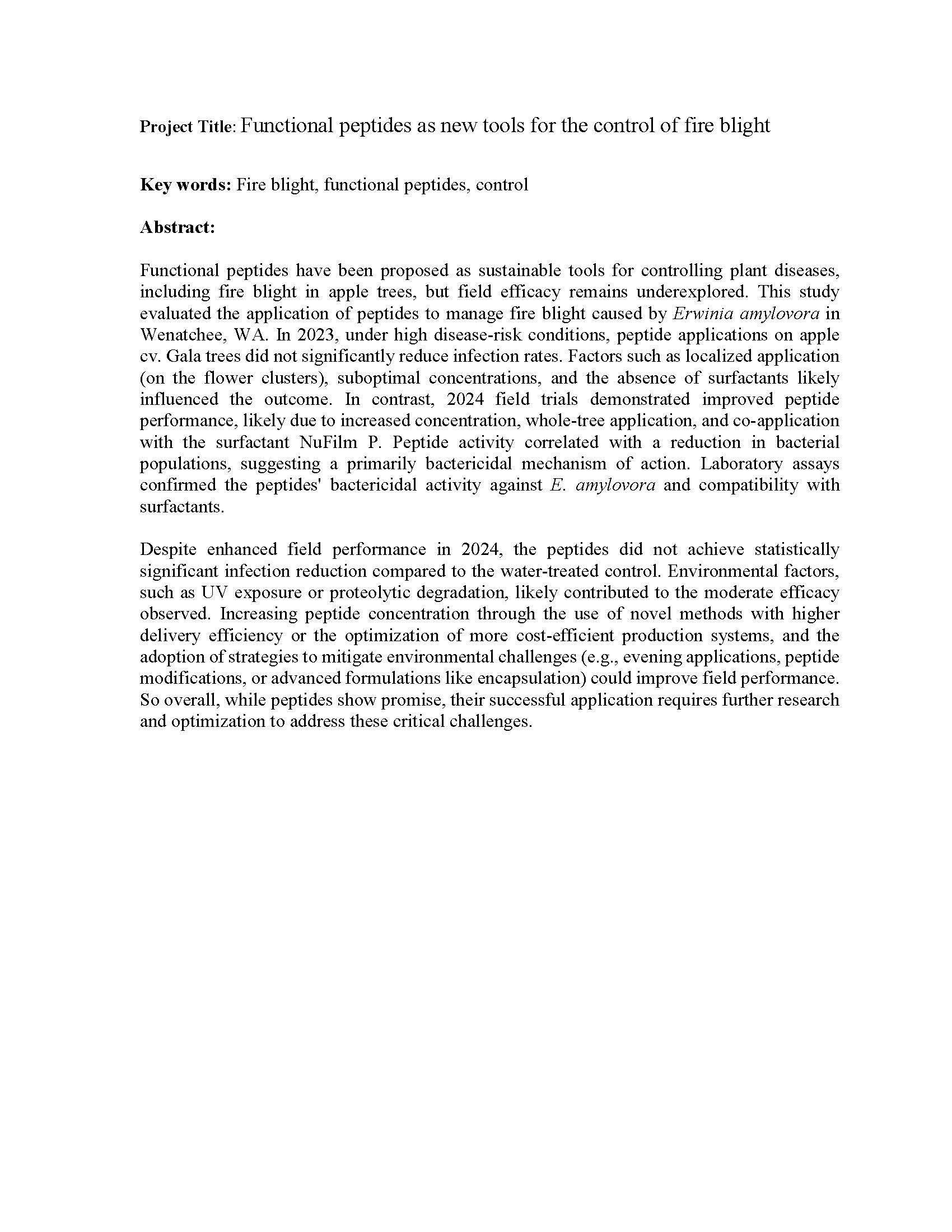Functional peptides as new tools for the control of fire blight
Author: Aina Baro Sabe
Published: 2025
Summary: Functional peptides have been proposed as sustainable tools for controlling plant diseases, including fire blight in apple trees, but field efficacy remains underexplored. This study evaluated the application of peptides to manage fire blight caused by Erwinia amylovora in Wenatchee, WA. In 2023, under high disease-risk conditions, peptide applications on apple cv. Gala trees did not significantly reduce infection rates. Factors such as localized application (on the flower clusters), suboptimal concentrations, and the absence of surfactants likely influenced the outcome. In contrast, 2024 field trials demonstrated improved peptide performance, likely due to increased concentration, whole-tree application, and co-application with the surfactant NuFilm P. Peptide activity correlated with a reduction in bacterial populations, suggesting a primarily bactericidal mechanism of action. Laboratory assays confirmed the peptides' bactericidal activity against E. amylovora and compatibility with surfactants. Despite enhanced field performance in 2024, the peptides did not achieve statistically significant infection reduction compared to the water-treated control. Environmental factors, such as UV exposure or proteolytic degradation, likely contributed to the moderate efficacy observed. Increasing peptide concentration through the use of novel methods with higher delivery efficiency or the optimization of more cost-efficient production systems, and the adoption of strategies to mitigate environmental challenges (e.g., evening applications, peptide modifications, or advanced formulations like encapsulation) could improve field performance. So overall, while peptides show promise, their successful application requires further research and optimization to address these critical challenges.
Keywords:

